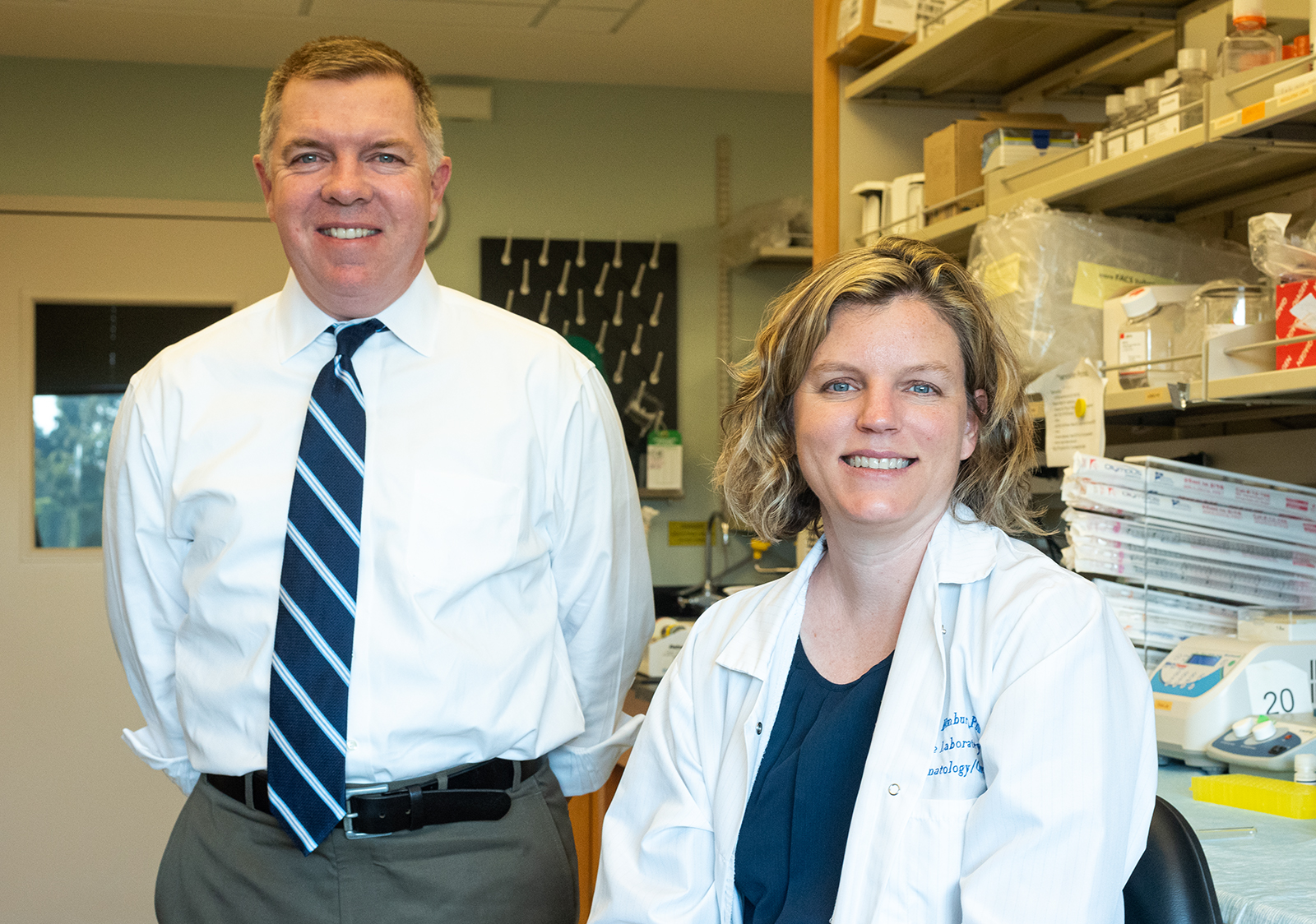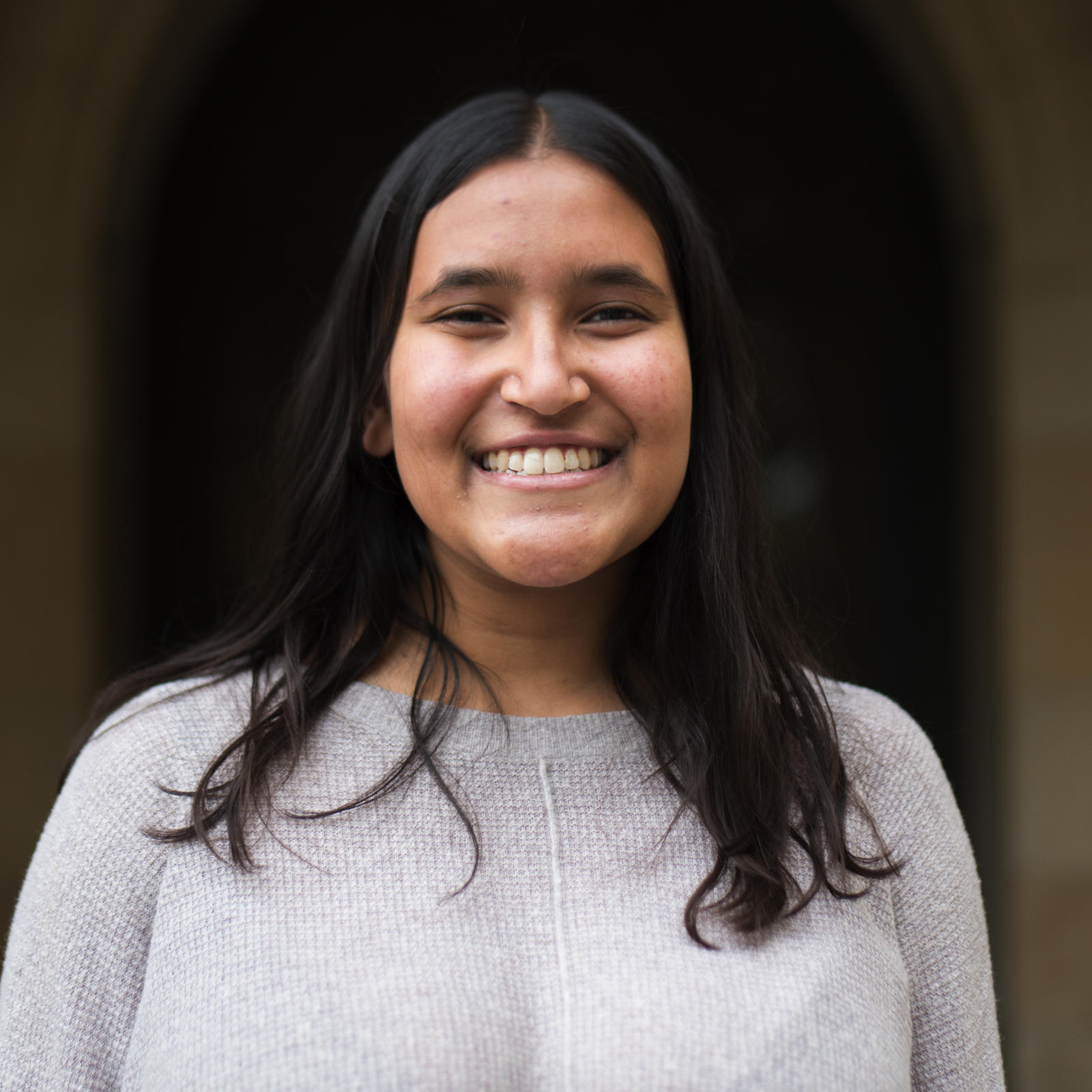Researchers find potential new treatment for chronic myeloid leukemia

Heather Himburg (right), an assistant professor of medicine at UCLA, and John Chute (left), a professor of medicine at UCLA, were co-authors in a study which discovered a method to block the growth of leukemic cells. (Joe Akira/Daily Bruin)

By Anushka Jain
Oct. 23, 2019 11:34 p.m.
UCLA researchers have discovered a way to block the growth of leukemic cells.
Researchers in the UCLA Chute Laboratory found that a specific antibody can block the molecule pleiotrophin from binding to chronic myeloid leukemia, or CML, cells according to a study published Oct. 15.
CML is a cancer of the bone marrow which allows a high number of white blood cells to grow. Compared to other forms of leukemia, like acute myeloid leukemia, the chronic form of the disease progresses more slowly.
Pleiotrophin is a growth factor that normally promotes the survival of the CML stem cells, said Heather Himburg, an assistant professor of medicine at UCLA and first author on the study. The researchers studied an anti-pleiotrophin antibody in mice and human stem cells taken from CML patients.
The antibody can be combined with the standard treatment for CML that has been used since 2000 – tyrosine kinase inhibitors, or TKIs, said John Chute, a study co-author and a UCLA professor of medicine. When combined, the two treatments can completely stop CML cell growth, Chute added.
TKIs alone have served as a treatment for CML because they target a gene that causes myeloid cells in bone marrow to grow unchecked, Chute said. TKIs can stop the growth, and even induce a complete clinical remission in 80% of patients, he said.
However, when patients use only TKIs as treatment, they have to be on the medication for the rest of their lives. Chute said if patients stop taking the drugs, the leukemia usually returns.
Current treatment options can also have various side effects and are both a health and financial burden for patients, Chute added.
Himburg said the antibody approach can improve the patients’ quality of life. She added the new development is a step toward completely curing the cancer, while the TKI treatment would simply keep most patients in remission.
TKI treatments alone cannot halt the cancer cell growth from pleiotrophin, which is why the team wanted to combine the treatment with the antibody approach. Targeting the pleiotrophin with both methods can fully eradicate the TKI-resistant cancer cells, Chute said.
When the researchers tried deleting the pleiotrophin genetically, they noticed that CML cells began to disappear, leaving the leukemia stem cells unable to repopulate, Chute said. The mice showed a slower disease progression and longer survival rate by about 100 days, Himburg said. When they combined the antibody and TKI treatments, the CML cells could not grow at all, Chute added.
“The combination of this antibody with standard (TKI), at least in principle, has the potential to eradicate the CML stem cells,” Chute said.
Himburg said in addition to eventually integrating the treatment in clinical trials, one of her goals is to test the antibody approach on different diseases. She said the lab group recently received a grant from the Jonsson Comprehensive Cancer Center to test the antibody in cases of acute myeloid leukemia.
Martina Roos, a study co-author and assistant professor of medicine at UCLA, said it can take two to five years for the research to be approved for clinical trial usage. After that, completing different phases of the trials in humans can take up to 10 years.
By continuing the research, the combination therapy can make patients’ lives easier, she added.
“It would allow (patients) to eventually get off therapy and … to not live with all the side effects of CML and to have significantly improved quality of life,” Roos said.


